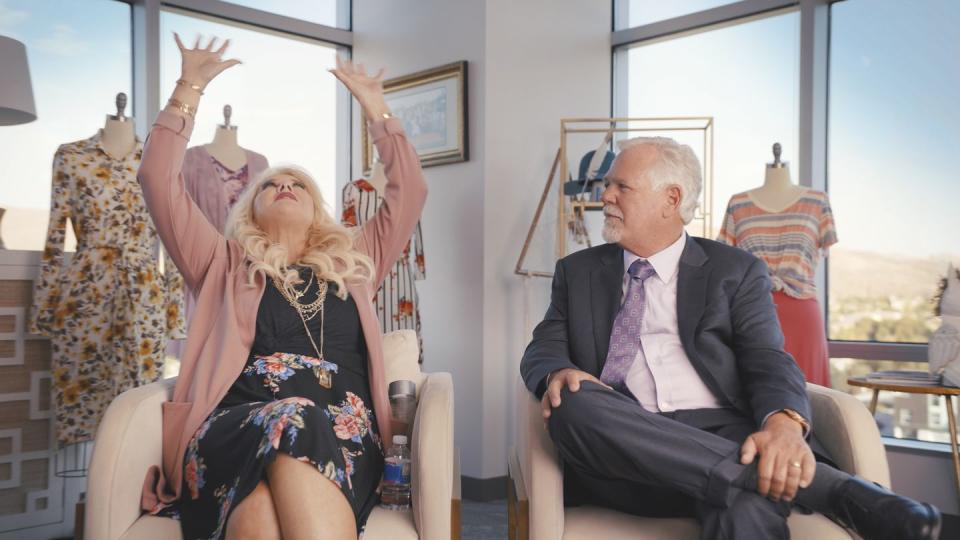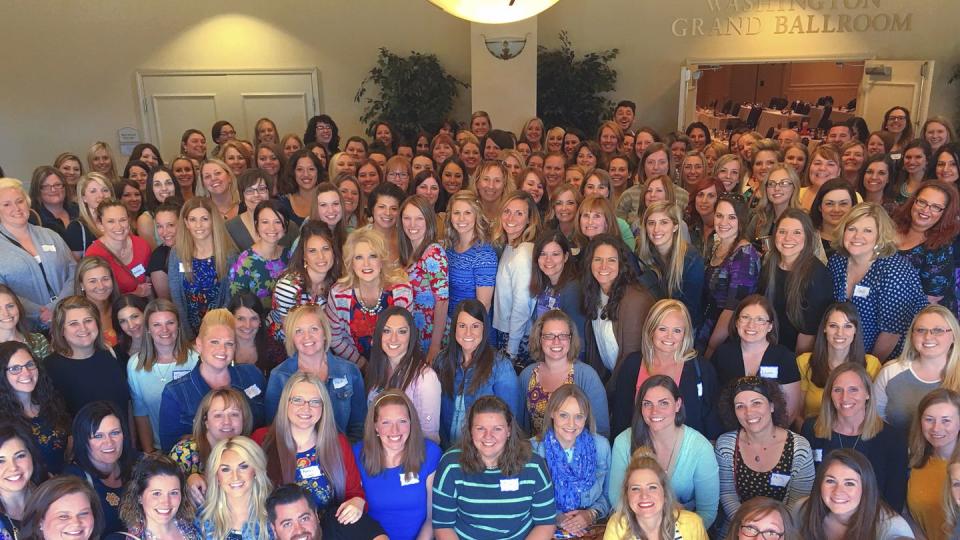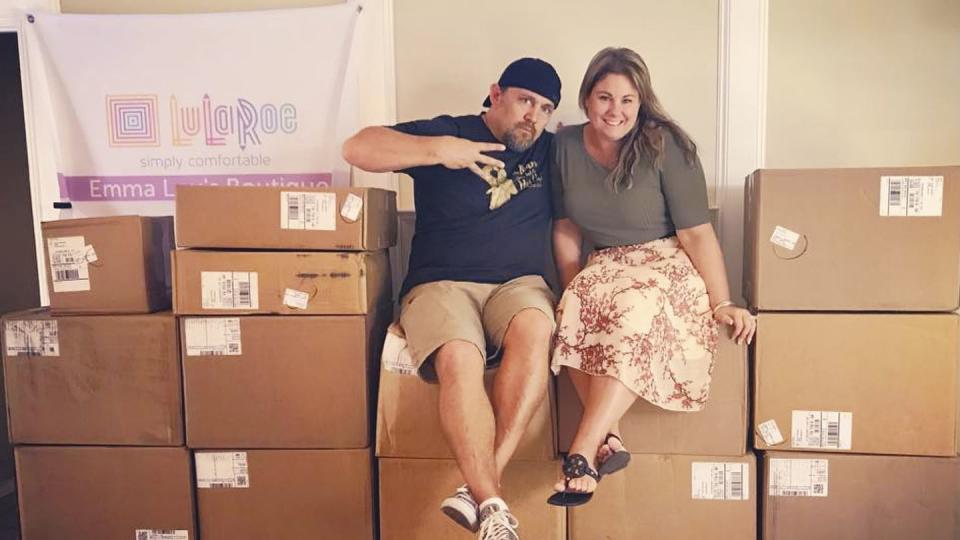LuLaRoe Was a Billion Dollar Leggings Empire Until the Lawsuits. 'LuLaRich' Tells the Story.
In the opening segment of LuLaRich, DeAnne and Mark Stidham—a cheery, coiffed Mormon couple with fourteen children, and co-founders of multi-level marketing clothing company LuLaRoe—adjust the tassels on the rug beneath them, to make sure the shot is just right. Their appearance is important, as they strive to tell their side of the story, recover from a mass exodus from their company, and redeem themselves after a 4.75 million dollar lawsuit settlement with the state of Washington. Their meticulous interview footage is a stark contrast to footage from their deposition, also sprinkled throughout the documentary.
LuLaRich, on Amazon Prime on September 10, is a new documentary from Jenner Furst and Julia Willoughby Nason, the creators of Fyre Fraud. The enthralling four-part series features interviews with DeAnne and Mark, as well as employees and independent retailers of LuLaRoe, a clothing wholesaler known best for their bold-patterned (which is an understatement) leggings.
DeAnne and Mark started LuLaRoe, named for their first three granddaughters, in 2013. What began as a maxi skirt operation in their home grew to become a multi-level marketing company selling colorful garments with over 80,000 independent retailers. The documentary explains that LuLaRoe targets primarily stay at home mothers, luring them in by advertising the ability to run a business and bring in income while taking care of their kids at home.

LuLaRoe operates as a wholesaler, selling stock to individual ‘retailers’ who then sell it to others. Those retailers earn by selling themselves, but also by recruiting others to become retailers, too. Their recruits become their team, whose sales they receive a percentage of in bonus checks. While LuLaRoe’s bonus structure changed in 2017, it is this structure of earning bonuses by recruitment that denotes a pyramid scheme, in which the majority of profits are made from new sign-ups instead of sales. According to Washington State Attorney General Bob Ferguson, “this [structure] allowed two LuLaRoe retailers — who each had hundreds of recruits in their ‘downlines’ — to make more than $5 million in profit collectively between 2016 and 2019, while at the same time, more than a third of retailers reported losses.”
And in LuLaRoe’s heyday in 2016, to buy into the dream and become a retailer came at a cost. At one time, it cost upwards of $5,000 to start up an arm of the business, which the company encouraged their retailers to gather by any means necessary—whether through multiple credit cards, taking out loans, or even selling their own breast milk. The waitlist for joining the company as a retailer ran hundreds of names long, with women from California to Utah moved by LuLaRoe’s stated mission to “create freedom through fashion.” The company held huge events and conferences (bringing in talent including Katy Perry and Kelly Clarkson; taking their top earners on cruises) to empower their retailers as they climbed up through the ranks of the MLM company. In 2016, LuLaRoe reported almost $2 billion in sales.

But the interviews in LuLaRich reveal that the girlboss empowerment culture of the company only thinly veiled a toxic, sexist scam. The documentary shows footage of religious messages about the proper function of a woman in the home preached at LuLaRoe events, features testimony from independent retailers who were supplied with faulty, damaged goods and gaslit about it by the founders, and even uncovers the pressure some top-earners felt to go get weight loss surgery in Tijuana, Mexico, in order to better represent the LuLaRoe success story. LuLaRich contains many tearful accounts of LuLaRoe destroying the lives, marriages, and finances of many women.
Over 50 lawsuits have been filed against LuLaRoe since 2016, and in January 2019, Washington State filed a civil lawsuit against LuLaRoe for allegedly operating as an illegal pyramid scheme. LuLaRoe settled with the state in February 2021 for 4.75 million dollars.
Today, the company remains in business, although according to the docuseries, many “LuLa-famous” independent retailers have closed up shop. The current buy-in to become a retailer is $499, and according to an income disclosure statement on LuLaRoe’s website, in 2020, over 50% of LuLaRoe retailers made less than $5000 from sales alone.

DeAnne Stidham’s Instagram account boasts over 80 thousand followers, but is currently private. The company account, however, continues to promote their clothing and the freedom and opportunity they provide to their retailers. “Before LuLaRoe, Erin and her husband had stressful jobs,” one caption reads. “She shares how having her own business has been a stress relief because they are working from home, spending more time with their kids, and attending all of their activities.”
And below it, a disclaimer: “***For information regarding the gross profits of Retailers who processed a transaction at any point in the year 2020, please refer to the 2020 LuLaRoe Income Disclosure Statement at: https://www.lularoe.com/lularoe-income-disclosure-statement***”.
You Might Also Like

